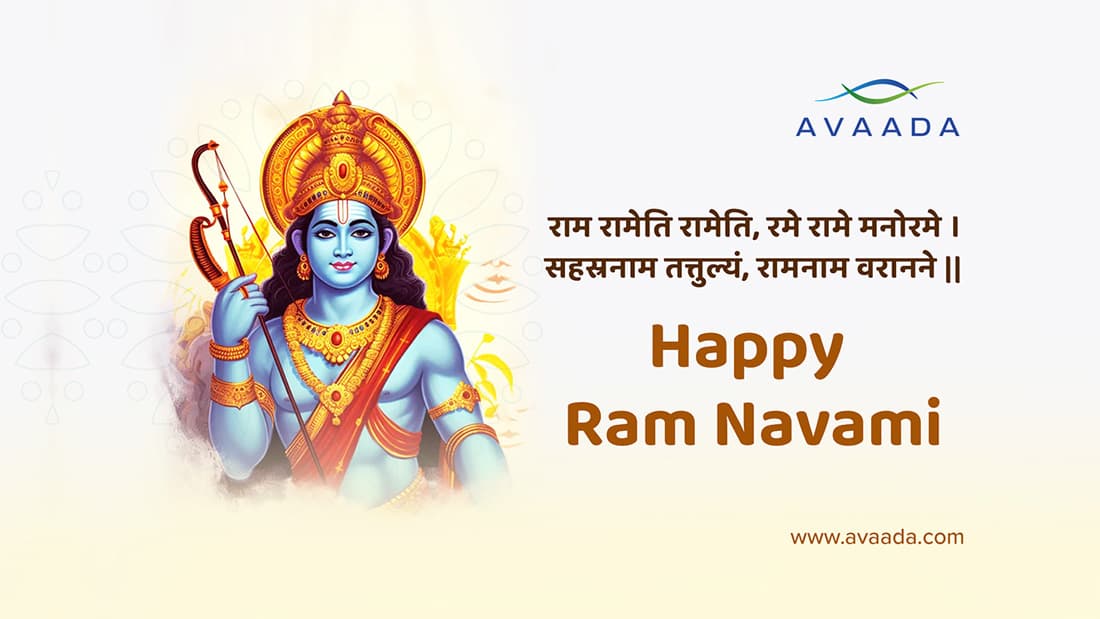“रघुकुल रत्न राम राज, धर्म ही राज का पाया।।”
Meaning: The reign of Ram, the jewel of the Raghu dynasty, was based solely on righteousness.
Ram Navami marks the auspicious celebration of Lord Rama’s birth, an embodiment of virtue and role model for all leaders. This festival is not just a cultural observance but also a profound occasion for moral reflection. The interpretations of Ramayana, such as those by Gunvant Shah, highlight its role as a timeless guide for moral and ethical conduct, where Lord Rama, also revered as Maryada Purushottam—the epitome of honor and righteousness—serves as an ideal. His life represents the victory of virtue over vices like ego, lust, and anger, and teaches the supremacy of moral principles and spiritual ideals in shaping human character and consciousness.
- Leadership and Decision-Making: Lord Rama’s governance and strategic decisions are exemplary in their wisdom and fairness. His leadership style showcases a process deeply rooted in dharma. For instance, his decision to accept exile to uphold his father’s promise demonstrates profound respect for duty and justice, providing a model for ethical decision-making in leadership.
- Learning and Adaptability: From a young prince to a revered king, Rama’s journey is marked by his adaptability to roles and circumstances, from the palace to the forest. His ability to adjust and thrive in diverse settings offers valuable lessons for today’s fast-paced world, emphasizing the importance of flexibility and continuous learning in leadership.
- Teamwork and Valuing Subordinates: Rama’s trust in his followers, like Hanuman and the Banar army, highlights his ability to inspire and empower. His inclusive leadership style underscores the importance of each team member’s contributions, regardless of their status or background, a vital lesson for fostering teamwork and collaboration in any organization.
- Forgiveness and Compassion: Even towards his adversaries, Rama exhibited forgiveness and compassion, traits that are crucial for conflict resolution and maintaining harmony within teams and communities today. His gracious treatment of vanquished foes and his ability to forgive illustrate how leaders can adopt empathy and compassion in modern practices.
- Integrity and Truth: Rama’s unwavering commitment to his principles, even in adversity, underscores the essential role of integrity in leadership. His life teaches that true leadership is about steadfastness to truth and ethics, qualities that build trust and respect in any leader today.
- Diversity and Inclusion: The narrative of Rama seamlessly includes diverse characters, from different backgrounds and species, each playing a crucial role in the epic’s unfolding. This inclusiveness is a testament to the strength found in diversity and unity, a message that is ever relevant in today’s globalised workplaces.
- Overcoming Challenges and Evil: The triumph of good over evil, a central theme in Rama’s story, symbolizes the eternal struggle and eventual victory against personal and professional challenges. His strategic approach to defeating Ravana and rescuing Sita inspires perseverance and resilience.
The life of Lord Rama offers enduring lessons in virtue, leadership, and human values. As we celebrate Ram Navami, let these lessons inspire us to reflect on and embody righteousness, integrity, and compassion in our daily lives and leadership roles. As we commemorate this sacred day, I invite you to share how Lord Rama’s life influences your personal and professional endeavors. Let his virtues guide us toward becoming better leaders and better humans in this ever-changing world.
Jai Shri Ram!









